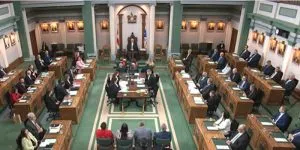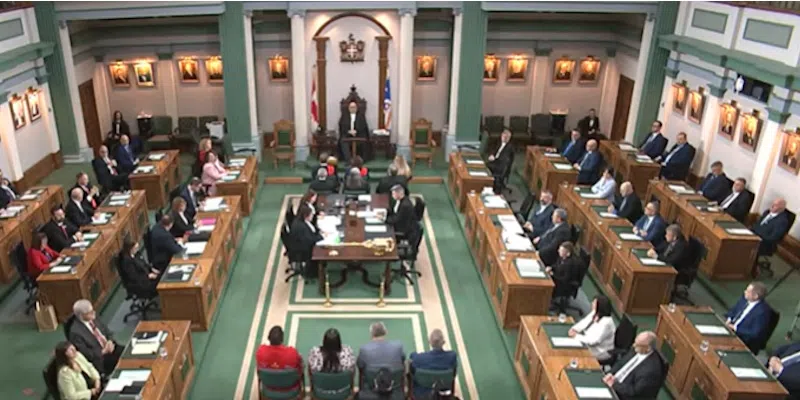The provincial government has announced a number of new and expanded measures to help address child poverty in the province.
Premier Andrew Furey says addressing child poverty is the first step to address poverty as a whole.
The premier announced today that government is increasing the NL Child Benefit by 300 percent over the next year and a half.
The measure will benefit approximately 14,000 children in families with the lowest incomes in the province, according to Furey.
The pre-natal infant nutritional supplement is being extended to age five, providing some 500 families with an extra $150 for an additional four years.

It is also providing more funding to expand school lunch and breakfast programs to all pre-Kindergarten and K-9 schools across the province starting next September.
That will mean more than 30,000 additional students will have access to school breakfast and lunch programs in the province.
In addition, the province is committed to improving training programs and connecting those who are not eligible for employment insurance with suitable jobs.
Additional measures targeting low income seniors and others have also been announced.
Measures announced in the Poverty Reduction Plan include:
Reducing Childhood Poverty
- Expanding the Prenatal-Infant Nutritional Supplement up to age five and renaming it the Early Childhood Nutrition Supplement to better reflect its expanded scope;
- Increasing the Newfoundland and Labrador Child Benefit by 300 per cent; and
- Providing additional funding to ensure school lunch programs are available in all Junior Kindergarten and K-9 schools.
Creating Meaningful and Sustainable Employment
- Continuing the Employment Stability Pilot province-wide; and
- Providing enhanced programming to train and connect non-employment insurance eligible individuals to employment.
Improving Income
- Streamlining and improving the Income Support program benefits structure beginning with an immediate increase of $50 per month for the comfort allowance to a total of $175 monthly for those individuals staying in temporary accommodations such as emergency homeless shelters; and
- Implementing a new targeted Basic Income Program for people age 60 to 64 currently in receipt of Income Support and the Community Supports Program through the Department of Health and Community Services.
Supporting Seniors
- Implementing a second targeted Basic Income Program for people aged 60 to 64 who currently receive Income Support and the Community Supports Program through the Department of Health and Community Services. These same individuals will receive an increase in payments to match federal seniors benefits, which they will receive at age 65. This will allow for more adequate and stable financial supports.
- A targeted poverty reduction plan for seniors will be released in the coming months. This will be informed by further stakeholder conversations to acquire more data.
- The ongoing work of the Cabinet Committee on Seniors will continue and it is anticipated that further measures to help seniors manage the higher cost of living will soon be released.























